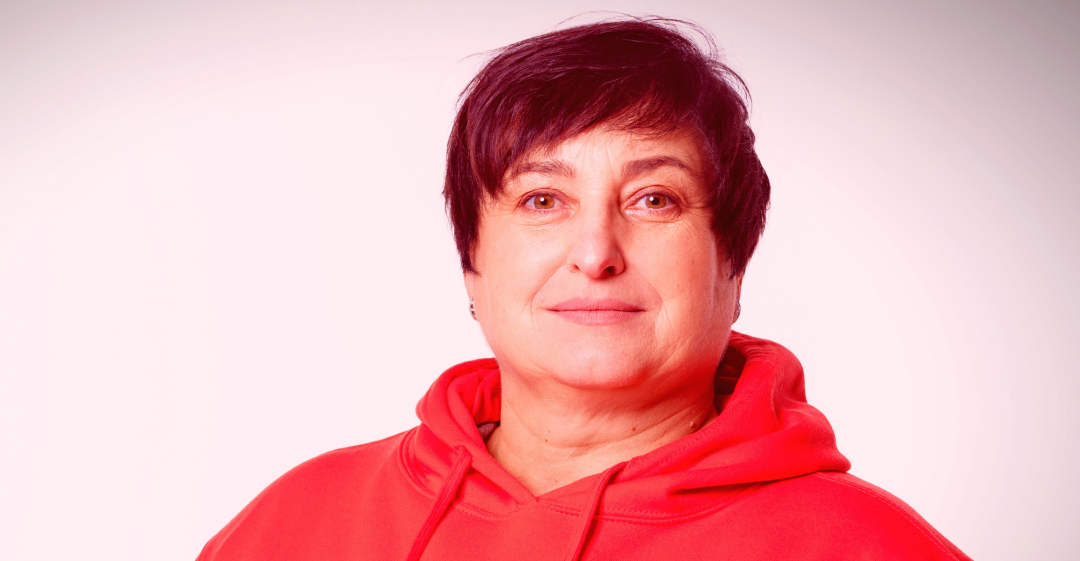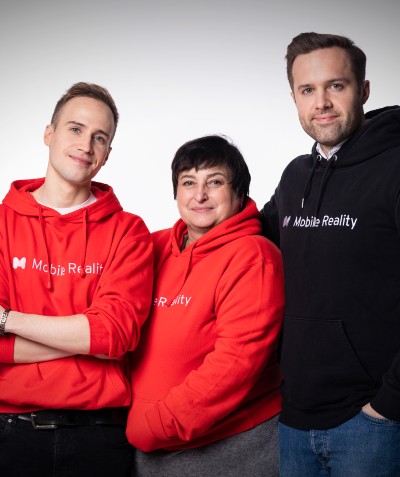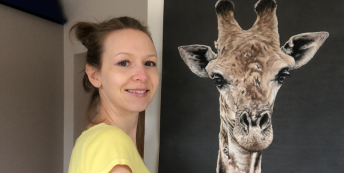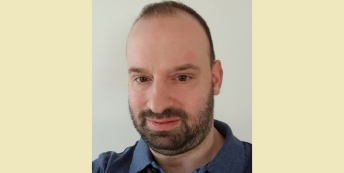“I was tired and there was nothing else I could do within the profession.”

What work were you doing previously?
I started my career as a teacher, and my last job before changing it was as a school principal at a city school.
What are you doing now?
Currently, I work across administration and HR in an IT company.
Why did you change?
I was tired of working for many years in an environment where a lot is dictated by politics, where you can’t introduce much innovation and change.
I love working with young people, I loved my job, but at some point I felt that I was tired and there was nothing else I could do within the profession. I still felt full of energy, and wondered if there is anything else I could do to further develop my professional skills.
I've done a lot for my students over the years, but this time I decided to do something for myself.
Are you happy with the change?
Very happy.
The industry is very interesting, it’s developing and full of challenges. Diverse people work in IT.
I've now been working in IT for over a year and a half, and during this time I've learned so many things that I can't wait to see what's ahead of me.
What do you miss and what don't you miss?
What I miss the most are people, employees and students.
At school, you interact with people all the time. Children run around the school, it's loud and fun.
I currently work remotely and only see my colleaugues once in a while, so I miss that interaction the most.
However, I do not miss the old structure and education system, which limits the work of teachers and does not allow students to fully use their potential.
How did you go about making the shift?
I'd been thinking about a change for some time, but I was afraid to take the step.
My new direction wasn’t planned, rather it resulted from the need that appeared in my sons' company.
One day my son called me and asked if I’d like to help with their software company. I thought about it for a long time, but in the end I decided to take up the challenge.
There’s a huge demand for programmers in IT, but unfortunately I don’t have those skills. On the other hand, I’m great at organisational matters, documents and conversations with employees, which is why the opportunity was the perfect fit for me and I chose this area.
It was very difficult for me at the beginning, as I had a new work system, new apps, learning industry slang and technologies I had no idea about. I had to adapt to online chats instead of meeting face-to-face, and get used to working remotely.
It’s got better over time and now I think I'm doing pretty well.
How did you develop (or transfer) the skills you needed for your new role?
I am an experienced employee, so all the skills I have acquired over the years have certainly helped me more in implementing my new duties than if I’d just started my career.
After all these years, having a lot of patience has helped me learn new skills and give myself permission that I need more time to learn new things. Time, patience and the support of my bosses helped me a lot in all this.
Working in IT I should be more fluent in who is programming in what language, in what technologies our projects are used, but sometimes I still get it wrong.
I need more time for that, and luckily no one expects me to be a junior programmer.
How did you handle your finances to make your shift possible?
Having the right amount of savings is important.
Have enough that will allow you to survive for a few months if the change of job fails.
If I didn't have adequate savings, I probably wouldn't have decided to change.
What was the most difficult thing about changing?
The hardest part was making the decision, then communicating it to my colleagues and my employees.
It caused me a lot of stress and fear.
The process itself was easy by comparison.
What help did you get? 
The help of my amazing sons who have been working in IT for years.
They calmly helped me learn the basics, told me about everything and answered even the simplest of questions.
What resources would you recommend to others?
In the process of change, I read a lot and participated in webinars and trainings.
I wouldn’t recommend anything specific, because everyone should choose sources according to what they need. I think it’s enough to open yourself up to knowledge, and the the right sources and people will come to you.
What do you wish you'd done differently?
If I had to change something, maybe I would have decided to change my career sooner.
Worry and fear unnecessarily slowed the process down.
What would you advise others to do in the same situation?
Don't wait.
If you feel you need a change, if you feel you are not happy at work, just change it.
Money, position or your lifestyle habits are good, but at the end of the day you have to be happy.
Don't give up on making the shift.
Thanks to our friends at Mobile Reality for this story.
What lessons could you take from Ewa's story to use in your own career change? Let us know in the comments below.



